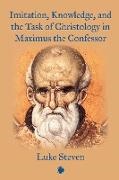Read more
Maximus the Confessor's combustive historical era, committed doctrinal reflection, and loud and influential voice took him on a turbulent career of traveling and writing around the Mediterranean. Maximus was a spiritual teacher, an ascetic and a contemplative, but he was also a polemicist, a crafter of dogma, an embattled Christologian, a premeditating rhetorician.
In this study, Luke Steven binds together these two disparate sides of the man and his writings by showing that throughout his oeuvre the Confessor positions imitation as the key to knowledge. This lasting epistemology characterizes his earlier ascetic and spiritual works, and in his later works it prominently defines his dogmatic Christological method ¿ that is, the means by which he communicates and persuades and brings people to understand and encounter Jesus Christ, the one with two natures, divine and human. This multifaceted study offers a deep assessment of Maximus¿s forebears, new insight on the animating assumptions of his thought, and an unprecedented focus on the rhetoric and method of his christological writings.
About the author
Luke Steven is an ordinand in the Church of England at St Mellitus College, London. He previously gained his PhD in the Faculty of Divinity at the University of Cambridge. He is the author of a number of articles on topics relating to early Christianity and patristics.
Summary
An exposition of the theme of imitation as the key to knowledge in Maximus the Confessor's Christology.

